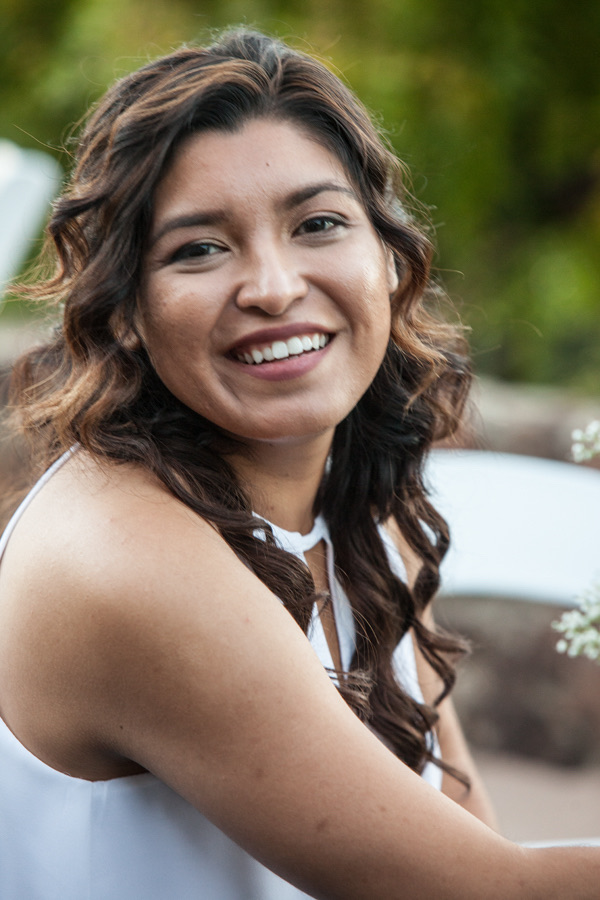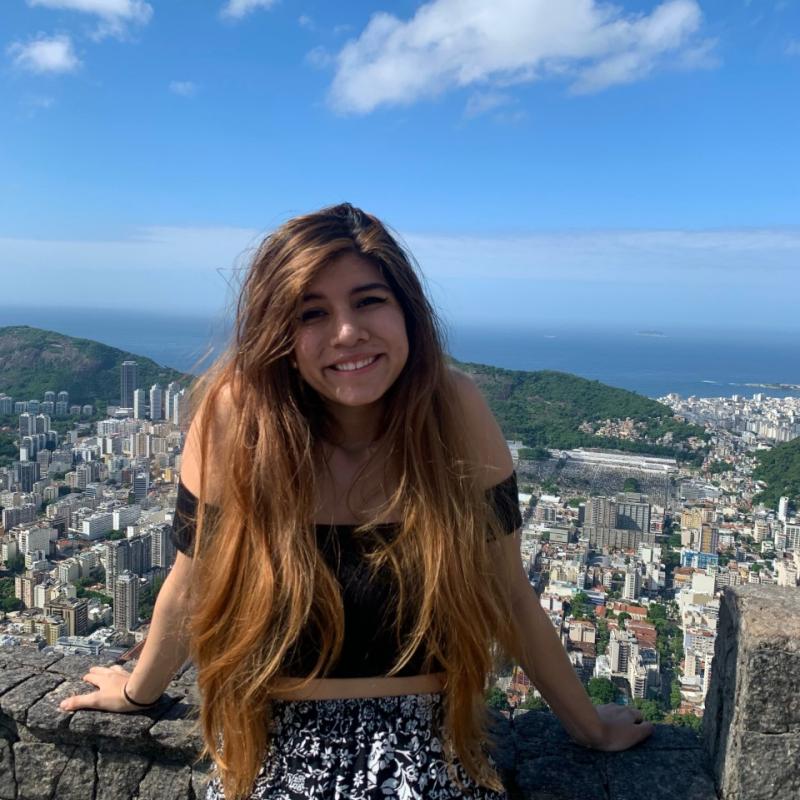Maria Vallejo Hower (she/her) is currently the Perinatal Coordinator for the Primary Care Perinatal Partnership and supports a NHC SF member in their service and serves as a linkage between SFDPH Primary Care Family Health Centers across San Francisco. We are so grateful for her support this past year and her dedication to our patients! See below for the full text of our interview with her. Content warning: there are mentions of suicide, domestic violence, and grief.
Q: What do some of your job responsibilities look like?
M: My main objective is working towards enhancing our amazing perinatal care. As is, the Primary Care Perinatal Partnership does a great job already, but the team is always interested in improving services for healthy outcomes and positive patient experience. I’m involved in coordinating perinatal services and support the completion of countermeasures for the department perinatal metrics. I also help patients access healthcare for themselves and sometimes children. 
Q: What initially interested you about your career path/profession?
M: I didn't know at first. I’ve learned I find fulfillment by being of service to low-income communities. I relate my passion for public service to my time in the military. I was in the U.S. Navy for four years and served two deployments. I’m an OEF/OIF (Operation Enduring Freedom/Operation Iraqi Freedom) veteran. What I most liked about the service was the camaraderie and I find similar experiences with colleagues that are in roles like mine. When I get to help and also be helping with like-minded people, it’s very special.
Q: What/who inspires you? Why?
M: The people who inspire me are my loved ones who have passed away, or relations I never got to have. My biological grandfather died by suicide, what I knew of him was that he was great, until he became unwell from mental health. This was all I knew until this year, I’m 38, and I recently learned that he was also an activist. I knew he was a migrant worker, but he also recruited while at the camps, or “campos” for unionization; he was a member of the United Farm Workers of America. He walked with Cesar.
My tia or “aunt” described how my grandfather, Marcelino, had a vision for his children to become educated, and begin the stages for generational wealth. He purchased an encyclopedia set from a door salesman, and she explains how he explained to them that he purchased the books so that she and her siblings had access to immediate literacy. This may not seem like much but, my maternal grandparents immigrated in the ‘50s, from Mexico to a small, rural border town of Texas; literally walking distance to the Rio Grande River. They were very poor with minimal education, but my grandpa understood the value of education. And, although it took hard physical labor, he succeeded in purchasing his family a home, establishing a foundation.
Learning what my grandfather wanted saddens me because after he passed away, things for his children changed. Living in poverty creates in itself traumas, but I think his loss brought on traumas like some of the ones our patients experience. Ones that could have been prevented. So, I think about him, and what my life, or my Mom’s life would have been like if he had stayed with us. I wonder if my mom wouldn’t have had me and my two brothers taken from her, maybe we could’ve had a chance to be a family, maybe I would’ve known my father, maybe he wouldn’t have abused my mother. Maybe we could have all had a chance.
I want to reignite his vision of generational gains and any other parent who wishes to uplift their children. I want to help families receive respectful care and be treated with dignity. I want to do this so we have less pain, trauma and losses in our communities. I believe addressing generational traumas and disparities is how our communities of color will get better.
Q: What was the moment that you realized this profession was for you?
M: What sparked this moment was when I realized how comfortable I felt working with our patient population. From my personal history, I’m sometimes able to relate to certain experiences, like homelessness or being in a CPS case, and so I’m at ease with patients. I knew this was for me when I could be in a room with a patient who has been severely harmed, and just be present with the person in front of me. I’m considered a community health worker and my lived experience allows me to sometimes establish trust with patients. I recognize my lived experiences are unique to me, and so is everyone else’s. I recognize we all have different identities and experiences, but overall, my lived experience helps me help others who look like me. It’s at this moment that I realized, what if someone who looked at me, and was like me, had been there for my family? Maybe his death could’ve been prevented. Maybe he could’ve encouraged my tia to pursue her dream of psychiatry, instead of being a migrant worker until her 20’s. This is the moment I realized how much I love my professional path.
Q: What was one of the more discouraging moments that you can remember? How did you deal with this situation?
M: Discouraging moments come from when our systems don't understand colleagues who have lived experiences, or even people of color. It's discouraging because things sometimes feel too institutionalized and this becomes hard to sit with. Now that I'm in a space where the patients are more relatable to me and my history. I notice our system doesn’t always know how to take care of us, by us, I mean people of color. I feel discouraged when colleagues say insensitive things about hardships. I believe public health has some uncomfortable growth to grow through, and it’s possible but it's only possible if we can have open conversations. It's one thing to write down that we’re socially doing equity work, but it’s another thing implementing equity and putting it into action.
I have a lot of hope that these systemic changes will happen because of our youth and so many young leaders nowadays. More young people of color are joining the social and healthcare field; some who have even received care on public health systems as kids themselves. I’m confident our young health and social professionals are going to uplift us socially. The way I deal with discouraging moments is really by working with young people. Their energy is encouraging.
Q: What advice do you have for people who are just beginning their journeys towards their career?
M: Once you find what you like doing, just pursue it. I bounced around a bunch of professions and I had to feel out all my options. Don’t be like me and wait until your mid-30’s to go back to college. If you can, figure it out before you're 30 and love the work you do. Seek what fulfills you and aligns with your values. Don’t allow others to discourage you, including yourself. I’ve learned I really am my own worst enemy, as old as this sounds, it’s really true.
We are grateful for your transparency and vulnerability with us! Thank you for sharing your experiences and being an inspiration to us.

